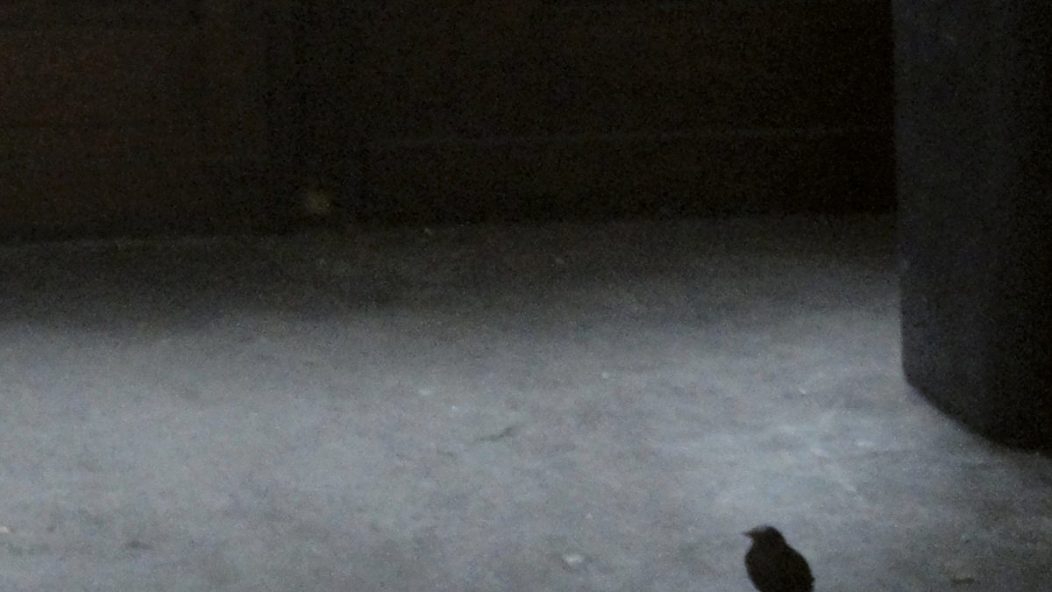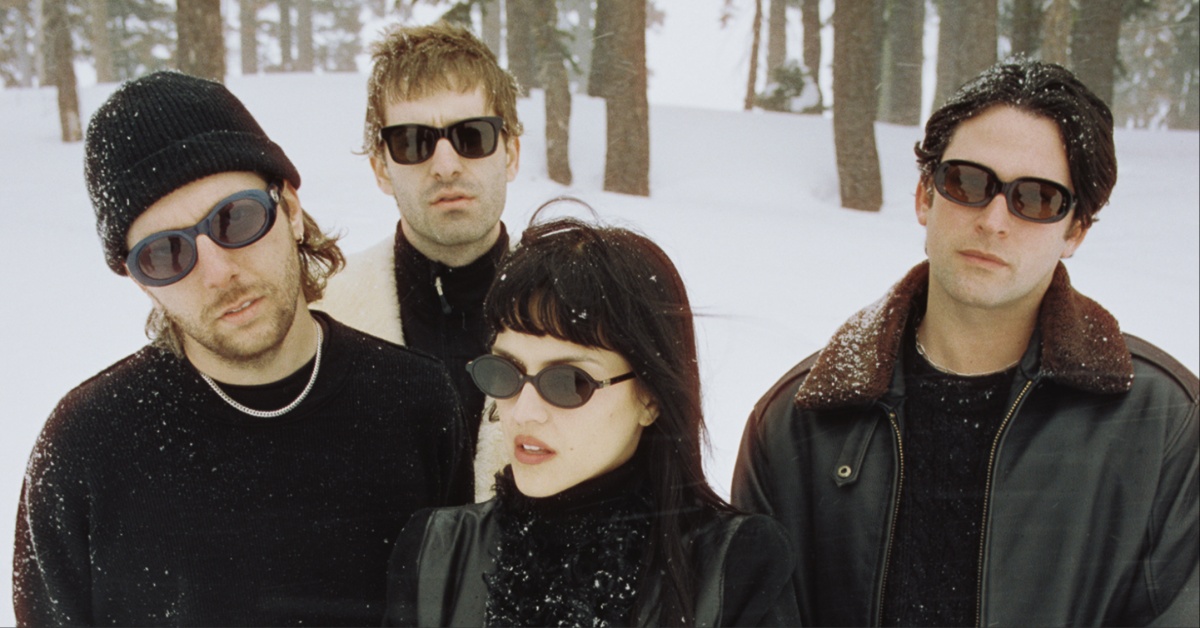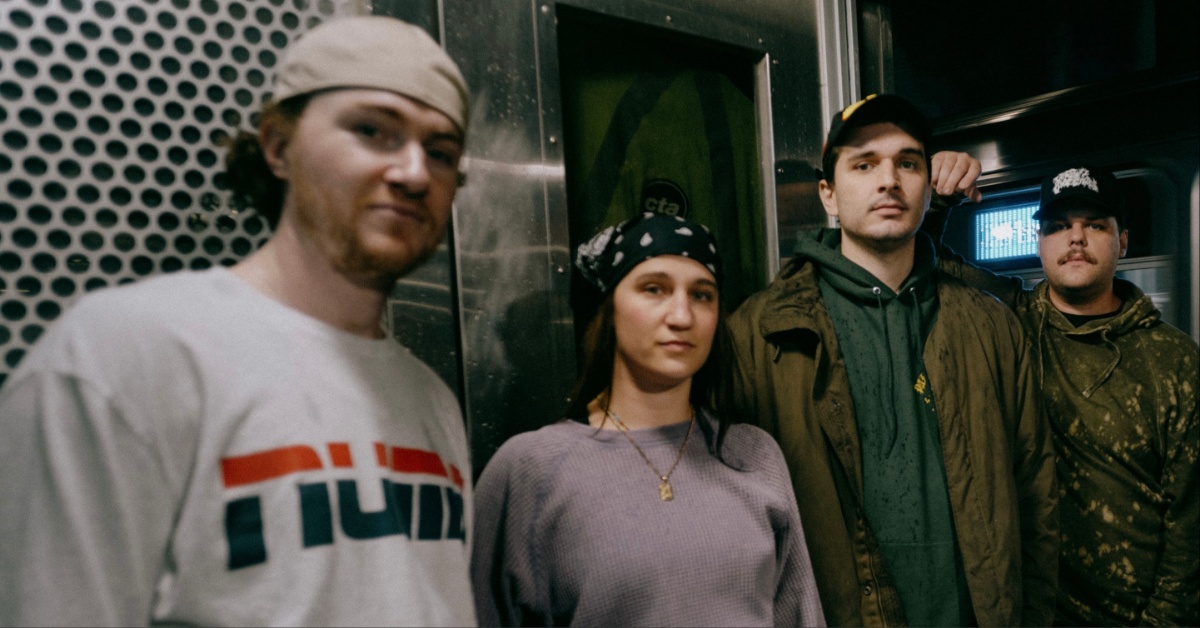
N + Ehnahre's "Jacob" Collaboration Takes Metal to the Future (Full Album Stream + Interview)
Though its electric nature makes metal an inherently modern music style, it, like most music, is stuck in the past. Popular music’s preoccupation with consonance, melody, and harmony places it in the Post-Romantic period, utilizing musical elements and practices with which we culturally feel familiar and comfortable. There is nothing wrong with being stuck in the past — in fact, it can be further expounded upon, still — but there are a few, very studied artists who take black metal into the latter half of the past century and beyond.
One of those few Modernist collectives is Ehnahre, whose body of work challenges metal’s melodic presence in favor of tension, release, and chaos. As an Expressionistic entity, Ehnahre’s highly improvised, physical cue-based death/doom-esque metal presents itself more like an ensemble or combo than an actual band.
Bringing German experimental artist Hellmut Neidhardt into the fold under his N moniker, the N + Ehnahre ensemble’s Jacob album crafts metal with a distinctly Modern flair. Punctuated by extensive bouts of free-improvisation, N and Ehnahre play the tension-and-release game, building as much discord and discomfort as possible before finally unleashing all their potential energy as mammoth, clattering, doomed metal.
Jacob is interesting as it is a heavy album, but in multiple ways. Though there is the obvious “the doom metal parts are heavy in a metallic way” explanation, the album itself is a physical weight the listener carries and it is physically exhausting. The N and Ehnahre collaboration is one of the rare examples of music which has a tangible effect on the listener. It hurts, but in a way which is immensely rewarding. Listen to an exclusive stream of Jacob and read an interview with Ehnahre bassist Ryan McGuire below.
…
…
This new album is a collaboration with noise artist N. What led to this collaboration?
It is actually a relatively straightforward story. We have a statement on our website that says we are open to collaboration, and please get in touch with us if you think you’d like to work together. We had just begun to sketch out material for Jacob, and I received an email from Hellmut saying that he would be interested in doing a collab record. So we checked out his material and really loved what we heard. It was definitely good timing, as Jacob, even in its earliest incarnations, was begging for multiple layers of drone and noise.
Featuring what I assume to be more aleatoric (chance/improvised) passages which define vast swaths of Jacob, how do you find yourself controlling the chaos before resolving into composed music?
After many years of exploring this kind of musical language, it has actually become quite natural for us. We are all pretty experienced improvisors, and we’ve cultivated this language within the group where we can just listen and feel our way through it. But we also compose in a way that helps facilitate these sorts of transitions, and gives us the ability to easily move in and out of what may seem to be more tightly composed parts and the free chaos.
When we are writing, most of what we put down on paper, particularly regarding rhythm, is more suggestive than explicit. Oftentimes rhythmic interpretation is left entirely to each instrumentalist. So for example, we might have a section where we say, bass is going to play this line that might contain melodic content. And it might just be a string of pitches with only vague markers of rhythm and tempo, if any at all. Then the guitar part has a pitch set or a series of chords or something, and Rich will realize it however he wants against that bass part. And then the drum part might just be a bit of text, or it might be slashed out but with accent markers on two or three notes of the bass part, which Josh can choose to play or not to play whenever they come around in the cycle of the phrase. And more often than not the piano part will be similar to the guitar, just a pitch set or a handful of notes with imprecise instructions. And this sort of model might apply to one phrase, one section, or an entire song. So we make an effort to begin and end at the same time, but we are individually free to push and pull the material to fit within these borders.
Even in what may appear to be tightly composed sections, we afford ourselves a bit of freedom. Sometimes it might be that we are playing a chord change in unison, but the rhythm is open, or the guitar part is given a pitch set to improvise on over a more definable bass part, or piano might layer clusters of chords over something at random, while simultaneously accentuating one note in the phrase of the bass guitar. It doesn’t really feel to us that we’re moving from chaos and into composed music, it’s more like we always have one foot in each world, but at times we’re leaning more in one direction than the other. That’s not to say that we don’t have ANY material that is strictly notated to be played in a very specific way, but those parts are very few and far between, and most times don’t apply to everyone in the group at once.
I had a teacher who told me once, “the only important notes are the first one and the last one”, and even though we’re employing that concept in a way that’s a little more literal than he intended, it is basically how we operate. So as I was saying earlier, with the sections that are a bit more free, we are creating these boundaries, allowing ourselves a certain amount of freedom within those boundaries, and when we are moving into something more discernibly composed, we can sense it’s arrival because we can feel that we’ve reached the outer boundary of the preceding section. And of course as a failsafe, there is always one member who is tasked with giving cues, usually whoever has the part that the success of the transition is most dependent upon.
This is the first time Ehnahre has dedicated an entire album to a collaboration with another artist outside the actual Ehnahre fold (though there was a collaborative EP with progressive metal band Hadean). What was it like sharing creative control with another artist?
It was quite effortless, really. We had composed and begun to record the skeleton of the album, keeping in mind that it would be getting an added layer of drone guitar. So once we started sketching things out, we would send them to Hellmut and he would send his ideas back. Everything he did worked so well, it never felt like sharing creative control, it just felt like we had a fifth member who knew where we were going with things. Even when he did something that surprised us, it was always a welcome surprise, something that we might not have thought of but worked brilliantly.
I also think it was so effortless and uncomplicated because the nature of our music is already rooted in relinquishing control to the other musicians. If I tell Jared, “I think the piano should emphasize the C# in this section,” I’m not telling him when or how to do it. He has the control to sort that out with his own voice. When you are working with people who you respect and can depend on their musicality and good judgement, it really is easy to just let them do their part. And Hellmut fit in perfectly in that regard.
As a Modernist metal band, I was curious as to your perspective on the future. As metal progresses into the current day as far as composition is concerned (largely thanks to both you and Adam Kalmbach of Jute Gyte, as well as more recent artists like Victory Over the Sun), where do you see it going next? Is that even fathomable right now?
I don’t have the foggiest idea. At the moment, it seems to me that things are heading in the direction of utilizing extreme dissonance, but with great technical facility. Shredding on minor seconds I guess? But I’m sure that will change in the near future, maybe it already has. Perhaps microtonality will become more commonplace, such as with Jute Gyte? Who the hell knows, I never thought metal would make it to where it is right now.
One thing I would say, is that I feel like rhythm is sort of the final frontier in metal. There is a small handful of more well know bands, like Sumac, that are fucking around a bit with parts in free meter, but it’s far from ubiqitous. I’m not sure it ever will be, but that to me seems to be one of the last doors left to open. How is anyone going to make metal any more dissonant, or faster, or slower, or techy, or noisy? I’m sure someone will come along and make me take that back, but the walls do seem to at least be coming into view in the push to the outer edges of the extreme of everything.
I can’t remember who it was that said it, but there was a free jazz musician in the 70’s who was being asked why free jazz wasn’t more widely accepted, and he said it wasn’t the dissonance that turned people away, there are many examples of dissonances being used in popular music. It was the lack of rhythm. Of all the ingredients that go into a musical soup, rhythm is the one that people have the hardest time omitting. But it seems to me that breaking down rhythm might be one of the last barriers to breach when trying to make music that’s darker, harsher and more insane. I doubt many people will succumb to the pleasures of a rhythm free world as much as Ehnahre, but I’d be willing to bet that we will see that tool come out of the tool kit a touch more in the future.
Having melded the Modern and Avant-Garde with your own brand of extreme metal for over a decade at this point, what do you do to maintain a steady stream of ideas? That is to say, how do you keep Ehnahre “fresh?”
They just keep coming. We don’t have any real expectations of what our music is “supposed” to be, and I don’t think whatever small fan base we have does either. Perhaps some people like some iterations better than others, but I don’t really think anyone knows exactly what to expect when we release a record. And I know that’s not unique to us, but it is more rare in the conservative world of metal. So that frees us up to indulge whatever musical or creative impulse we have. We do whatever the hell we want.
If there was not a soul left on planet Earth that had even one iota of appreciation for what we do — and to be honest we might be approaching that point — we would operate in the same fashion. We don’t make much money from this, we certainly couldn’t make a living off of it. We don’t have millions of adoring fans expecting us to recreate that one record they love ten times over. We’re not playing Wacken. But that gives us a freedom to explore quite a bit more, and it allows us to experiment, and to fail. We know who we are, what we do, and what purpose we serve musically, so we can take all the chances that we want.
And we allow ourselves the freedom to bring all of our different tastes and influences to the table. We never have to stop and consider whether or not we should be using Thai gongs as the centerpiece of a track on a metal record. Or whether or not people will get bored if the first seven minutes of the opening track is just electronic crackling noises. Or if we should make an entire metal record with a fucking timpani instead of a drum kit.
So in effect, the ideas come in so fast it’s like drinking from a firehose, there are just so many possibilities. It’s easy for things to stay fresh when you place zero limitations on yourself. Whether or not we can successfully see those ideas to fruition is another story.
This is the first time an Ehnahre album has been released on vinyl (thanks to Glossolalia Records). Though previous albums have been either too lengthy or oblong in shape to fit on the format, this must be quite the treat. What is it like to finally see this project on vinyl?
This is actually not the first Ehnahre release on vinyl! Our second recording, Alpha/Omega was released on vinyl way back in the olden times of 2010. But we are extremely thrilled that Jacob is getting a vinyl pressing. The record just sounds so amazing on wax, it’s almost unbelievable. Any debate about the superiority of digital versus vinyl is not serious and not worth having. Vinyl is king. And as far as I’m concerned, if you think otherwise you’ve probably got cotton in your ears. So we are just so happy to have this wee bit of noise available in the ideal listening format. We’ve had listeners asking us to put something out on vinyl for years, but you know, money and representation don’t come easy when most people think your music sounds like a guitar being thrown down a flight of stairs.
And we are really, really grateful to Ken at Glossolalia for the efforts he’s put into getting this release together. All of the insanity that was 2020 made it extraordinarily difficult to see this to completion, but he stuck by it and believed in the record, and we are deeply appreciative of him for that.
Over time, Ehnahre has become more abstract (following multiple releases of both solo and ensemble improvisation, a far cry from 2008’s more physically concrete The Man Closing Up, which led to a steady deconstruction ever since). Where do you see the band going next?
Honestly, I’m not totally sure. But I could see us getting into more long form composition in the near future. I love these types of long, static pieces that take forever to pay off. You’ve got 35 minutes of scratching noises on a drum head that get embedded under your skin, you finally start to get comfortable in that world, and finally one simple consonant chord hits and just lights your brain up. The sort of music that has you puzzled for the first 30 minutes, thinking to yourself, “what the fuck is going on? what are we doing here?” But when that plane finally lands, boy you better have a pair of clean underwear on hand.
Or maybe we’ll just do a 7″ of fucked up blast beats and microtonal sweep picking.
Or perhaps we will do a double LP of music composed of very small sounds.
I really have no idea yet, a few different ideas are just starting to come into focus, but those ideas will probably change by the end of the week.
…
Jacob releases today on Glossolalia Records.
…











